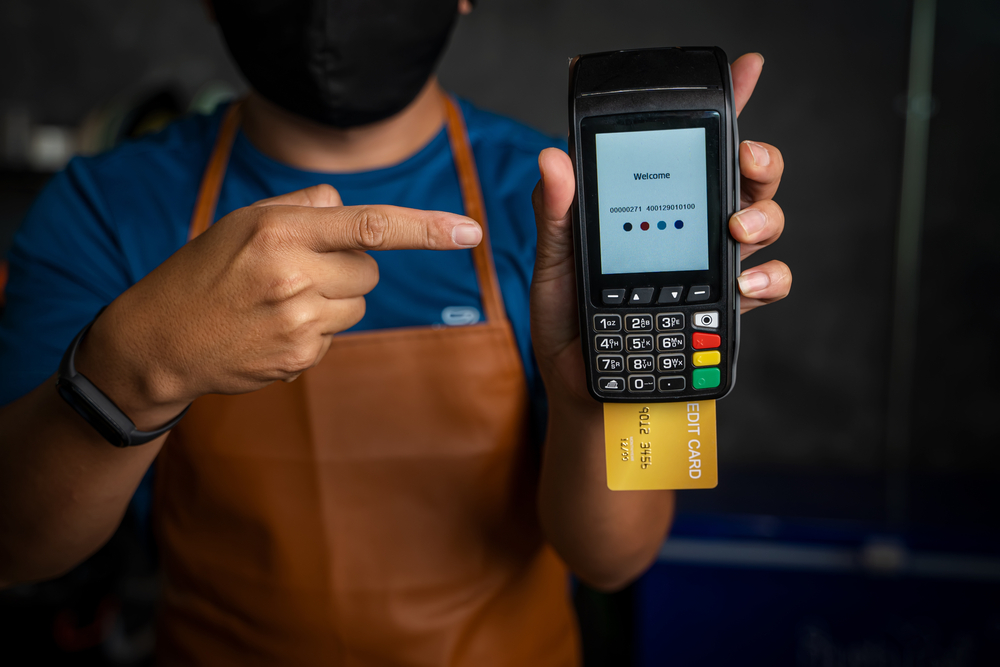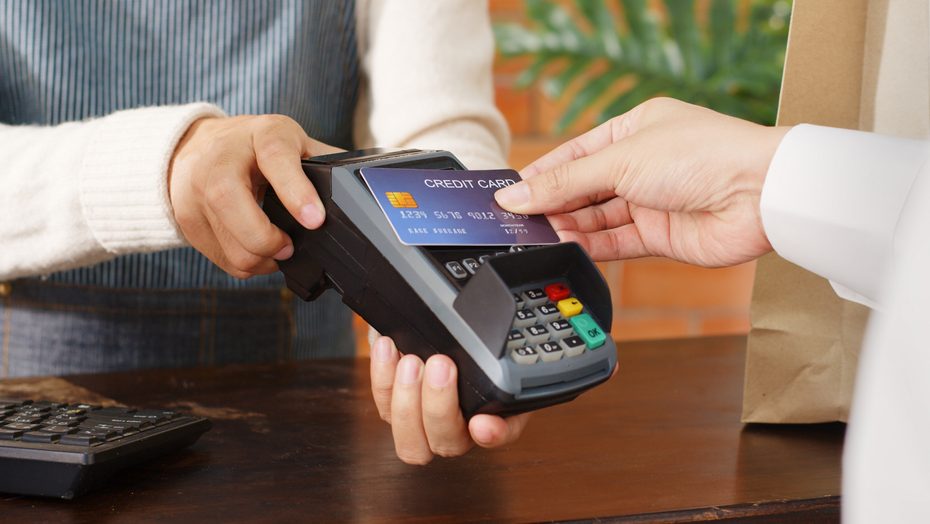Any business taking customer payments must focus on merchant category codes(MCC) because they can impact the interchange rate and the cost of card processing. MCC also impact taxes and the way the Internal Revenue Service (IRS) categorizes your business.
But, what is a merchant category code or MCC? The merchant category code is a 4-character number that credit card firms use to organize businesses into segments. The code shows the various products or services a brand sells to customers.
For companies that trade in both products and services, the category code often represents the business that rakes in the most sales.
How to Find a Merchant Category Code
In order to effectively categorize and track transactions, it is crucial for businesses to identify the Merchant Category Code (MCC) associated with various vendors. One reliable method to find MCCs is by referring to the online database of major payment networks like Visa, MasterCard, and American Express. These networks offer publically accessible MCC lists that can be browsed or searched.
Another approach involves reaching out directly to the acquiring bank or payment processor utilized by your business. Acquiring banks possess comprehensive information about MCCs as they play a key role in processing transactions and monitoring compliance.
Additionally, industry publications, forums, and conferences focusing on merchant services may provide valuable insights into specific MCCs related to particular sectors. Keeping abreast of changes in MCC codes is equally important as some businesses may undergo code revisions due to operational modifications or evolving regulations.
On the other hand, if merchants want to obtain their MCC, they must contact their credit card processors, whether it is MasterCard, Visa or any other. To acquire an MCC, businesses typically need to partner with a card payment processor or acquiring bank that can assign them the appropriate code. During the merchant account setup process, prospective merchants are required to provide detailed information about their business activities and nature of goods or services offered.
The information provided by business owners or merchants help acquirers determine the most suitable MCC based on the industry-specific guidelines provided by major credit card networks such as Visa, Mastercard, and American Express. It is crucial for businesses to ensure accurate categorization as it impacts various aspects such as interchange fees, fraud detection systems, marketing initiatives, and monitoring of sales trends within specific industries.
Collaborating with a knowledgeable payment processing provider like EMB ensures that businesses obtain the correct MCC that aligns with their operations while complying with network guidelines. Merchants can also visit the official website of the card brands they use. Many times, these codes vary depending on your processor, but some resemblances exist, as we shall see.
MCC Code Lookup for Visa
Merchant category code lookup for Visa is a crucial tool used by professionals in the financial industry to identify and analyze merchant category codes (MCCs) associated with Visa transactions.
These codes play a significant role in classifying different types of merchants, enabling better understanding and tracking of spending patterns across various industries.
With this lookup tool, professionals can easily search for specific MCCs, gaining valuable insights into the nature of a merchant’s business. This information is especially useful for risk management purposes as it allows financial organizations to assess potential risks associated with specific industries or merchants before approving or declining transactions.
Additionally, merchant code lookup facilitates monitoring and identification of any suspicious or fraudulent activities that may occur within certain MCC categories. Ultimately, it empowers professionals to make well-informed decisions based on accurate data, enhancing efficiency and security within the payment ecosystem.
Below is a list of common category codes for the various merchant segments.
| 5611 | Men’s and Boy’s Clothing and Accessories Stores |
| 5621 | Women’s Ready – to – Wear Stores |
| 5631 | Women’s Accessory and Specialty Shops |
| 5641 | Children’s and Infant’s Wear Stores |
| 5651 | Family Clothing Stores |
| 5655 | Sports Apparel, Riding Apparel Stores |
| 5661 | Shoe Stores |
| 5681 | Furriers and Fur Shops |
| 5691 | Men’s and Women’s Clothing Stores |
| 5697 | Tailors, Seamstress, Mending, and Alterations |
| 5698 | Wig and Toupee Stores |
| 5699 | Miscellaneous Apparel and Accessory Shops |
| 5712 | Furniture, Home Furnishings, and Equipment Stores, Except Appliances |
| 5713 | Floor Covering Stores |
| 5714 | Drapery, Window Covering and Upholstery Stores |
| 5718 | Fireplace, Fireplace Screens, and Accessories Stores |
| 5719 | Miscellaneous Home Furnishing Specialty Stores |
| 5722 | Household Appliance Stores |
| 5732 | Electronic Sales |
| 5733 | Music Stores, Musical Instruments, Piano Sheet Music |
| 5734 | Computer Software Stores |
| 5735 | Record Shops |
| 5811 | Caterers |
| 5812 | Eating places and Restaurants |
| 5813 | Drinking Places (Alcoholic Beverages), Bars, Taverns, Cocktail lounges, Nightclubs and Discotheques |
| 5814 | Fast Food Restaurants |
| 5912 | Drug Stores and Pharmacies |

Why Business Owners Must Pay Attention to MCC
Business owners must pay close attention to MCC or merchant category codes because they play a crucial role in understanding and managing their financial transactions. These codes help financial institutions categorize merchants for various purposes, such as risk management, fraud prevention, and reporting.
By understanding and monitoring their assigned MCCs, business owners gain insights into their customers’ buying patterns, identify potential areas for growth, and make informed decisions about expanding product offerings or targeting specific markets.
Furthermore, MCCs also influence pricing structures and interchange fees charged by payment processors. Being aware of these codes empowers business owners to negotiate better rates or explore alternative payment options that align with their company’s needs.
Another good reason why MCC is important for business managers is because it determines whether a merchant can report certain payments on IRS’s Form 1099-MISC. Form 1099-MISC is used to report miscellaneous income received by individuals or businesses throughout the year. It helps the IRS track and ensure accurate reporting of income for tax purposes.
The MCC associated with a particular payment helps determine if it falls under the categories that require reporting on this particular IRS form. By accurately categorizing payments through MCC, merchants can comply with IRS regulations and avoid potential penalties or audits.
Additionally, MCC also determines whether a company can add a convenience fee on payments made via credit cards. A convenience fee is an additional charge imposed by merchants when customers choose to pay using credit cards instead of other payment methods like cash or checks. However, not all businesses are allowed to add such fees.
Category codes also have an impact on a business’s risk profile. For instance, some credit card firms have high-risk merchant category codes meant for risky businesses. Businesses with a high risk merchant account fall in these groups and pay higher processing fees. On the other hand, businesses with specific category codes like non-profits or certain schools are entitled to relatively lower interchange fees.
Overall, paying attention to MCCs allows business owners to optimize operations, mitigate risks, and make strategic decisions that drive profitability while enhancing the overall customer experience.
Final Words
In order to effectively categorize and track transactions, it is crucial for businesses to identify the Merchant Category Code (MCC) associated with various vendors.
The information provided by business owners or merchants help acquirers determine the most suitable MCC based on the industry-specific guidelines provided by major credit card networks such as Visa, Mastercard, and American Express.
Business owners must pay close attention to MCC or merchant category codes because they play a crucial role in understanding and managing their financial transactions.
With too much at stake, business owners must strive to get the right classification. Accurate categorization will help you avoid extreme fees, ease tax payments and streamline your business’s payment experience.
An MCC, or merchant category code, is a four-digit number used by credit card companies to classify businesses according to the type of goods or services they provide. In the case of PayPal for ecommerce, the MCC would help categorize the business, which could influence things like interchange rates and card processing costs. MCCs are important for any business that takes customer payments, including ecommerce sites using PayPal.
To perform a merchant code lookup, you need to contact your credit card processor. This could be MasterCard, Visa, or any other company. They should provide you with details about your merchant category code. Alternatively, you can visit the official website of your card brand, as they often list their category codes.
A merchant category code lookup is a process to find out the merchant category code, or MCC, of a business. MCCs are used to categorize businesses based on the service or products they offer. You can find your MCC by contacting your credit card processor or visiting their official website.
For an MCC code lookup, you need to reach out to your credit card processor. They will provide you with the necessary information regarding your MCC. The processors could be MasterCard, Visa, or others. Alternatively, you can visit the official website of your card brand, as they often list the category codes.
A merchant number list refers to a compilation of merchant identification numbers, also known as MID. Every business that applies to accept credit cards is assigned a merchant ID, which is used to identify the merchant during transactions. This list would contain the MIDs of multiple businesses.
The merchant category code can be found by contacting your credit card processor. They would give you the needed information about their category codes. You can also visit the official website of your card brand for this information. It’s important to note that these codes can vary depending on your processor.
Still have questions?
If you can’t find the answer you’re looking for, please reach out and chat with our team.
Get in touch

